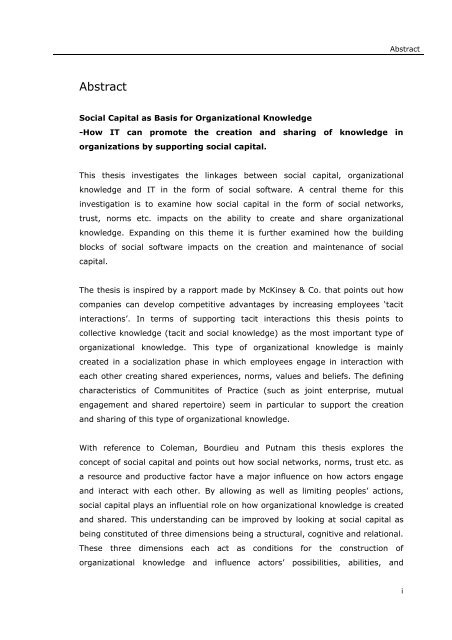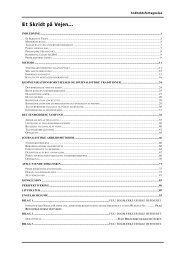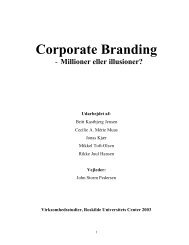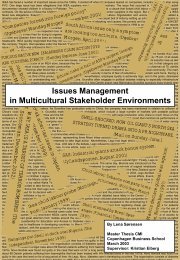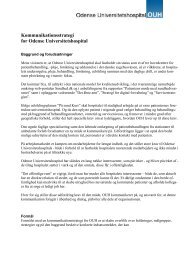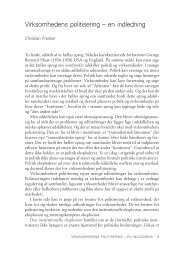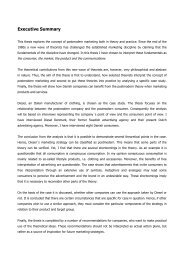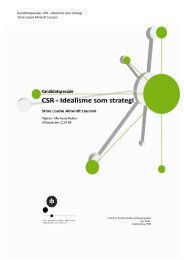Social kapital som fundament for organisatorisk viden_ Speciale af ...
Social kapital som fundament for organisatorisk viden_ Speciale af ...
Social kapital som fundament for organisatorisk viden_ Speciale af ...
You also want an ePaper? Increase the reach of your titles
YUMPU automatically turns print PDFs into web optimized ePapers that Google loves.
Abstract<br />
Abstract<br />
<strong>Social</strong> Capital as Basis <strong>for</strong> Organizational Knowledge<br />
-How IT can promote the creation and sharing of knowledge in<br />
organizations by supporting social capital.<br />
This thesis investigates the linkages between social capital, organizational<br />
knowledge and IT in the <strong>for</strong>m of social software. A central theme <strong>for</strong> this<br />
investigation is to examine how social capital in the <strong>for</strong>m of social networks,<br />
trust, norms etc. impacts on the ability to create and share organizational<br />
knowledge. Expanding on this theme it is further examined how the building<br />
blocks of social software impacts on the creation and maintenance of social<br />
capital.<br />
The thesis is inspired by a rapport made by McKinsey & Co. that points out how<br />
companies can develop competitive advantages by increasing employees ‘tacit<br />
interactions’. In terms of supporting tacit interactions this thesis points to<br />
collective knowledge (tacit and social knowledge) as the most important type of<br />
organizational knowledge. This type of organizational knowledge is mainly<br />
created in a socialization phase in which employees engage in interaction with<br />
each other creating shared experiences, norms, values and beliefs. The defining<br />
characteristics of Communitites of Practice (such as joint enterprise, mutual<br />
engagement and shared repertoire) seem in particular to support the creation<br />
and sharing of this type of organizational knowledge.<br />
With reference to Coleman, Bourdieu and Putnam this thesis explores the<br />
concept of social capital and points out how social networks, norms, trust etc. as<br />
a resource and productive factor have a major influence on how actors engage<br />
and interact with each other. By allowing as well as limiting peoples’ actions,<br />
social capital plays an influential role on how organizational knowledge is created<br />
and shared. This understanding can be improved by looking at social capital as<br />
being constituted of three dimensions being a structural, cognitive and relational.<br />
These three dimensions each act as conditions <strong>for</strong> the construction of<br />
organizational knowledge and influence actors’ possibilities, abilities, and<br />
i


